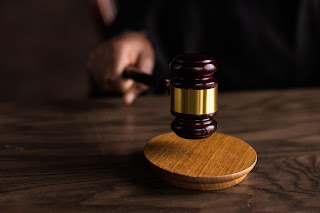A hotly debated issue in medical malpractice litigation over the past decade has been whether a defendant-physician can (1) refuse to answer standard of care questions or medical opinion questions or respond to requests to conduct a retrospective review of his/her own care so long as [s]he agrees not to testify as to those matters at trial (Allegheny County Judge R. Stanton Wettick (ret.) approach) or (2) can be compelled to answer deposition inquiries regarding standard of care, medical opinion, and/or retrospective review of care (Lackawanna County Judge Terrence R. Nealon approach).
In an Opinion issued earlier this week in the medical malpractice case of
Lau v. Allegheny Health Network, G.D. 18 - 011924 (C.P. Allegh. Co. March 30, 2021 Ignelzi, J.), the Motions Court Judge in Allegheny County, Judge Phillip Ignelzi, abrogated the Judge Wettick approach for Allegheny County moving forward and adopted Judge Nealon’s approach as enunciated in
Karim v. Reedy, 53 Pa. D. & C.5th 335 (Lacka. Co. 2016)(click this
LINK to view that case) and
Howarth-Gadomski v. Henzes, 2019 WL 6354235 (Lacka. Co. 2019)(click this
LINK to view that case).
Judge Ignelzi held in Lau that defendant-physicians must now answer questions regarding standard of care, medical opinion, and/or retrospective review of care during their discovery depositions.
The decision is also notable for its instruction on the proper conduct of counsel during discovery, including at depositions. Judge Ignelzi frowned upon speaking objections and instructions by counsel to a witness not to answer a question.
The Court in
Lau noted that an attorney should not instruct a witness not to answer a deposition question “unless counsel has objected on the ground that the answer is protected by privilege or a limitation on evidence directed by the Court.”
See Op. at p. 33.
Judge Ignelzi adopted Lackawanna County Local Rule of Civil Procedure 4007.1(a), that states that counsel making an objection at a deposition shall state the word “objection,” and briefly state the legal basis for the objection without argument.
See Op. at p. 30.
The Court also provides guidance on what types of deposition questions can be properly the subject of “objections to the form of the question,” and confirms that if such objections are not made during the course of a deposition, such objections to the form are considered to be waived under Pa.R.C.P. 4016(c).
More specifically, the Court found that deposition questions that are properly the subject to objections to the form of the question include “compound questions, questions that are ambiguous, unintelligible, misstatements of evidence or testimony, argumentative, assuming facts not in evidence, calling for speculation and deponent answers that are non-responsive.”
See Op. at p. 29-30.
Anyone wishing to review this decision may click this
LINK.













